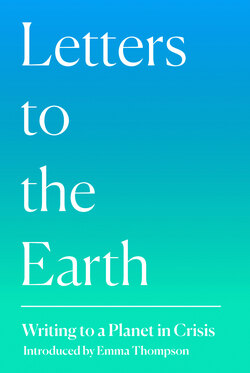Читать книгу Letters to the Earth - Группа авторов - Страница 19
Letter to the Worms
ОглавлениеA little girl about seven years old, lying on stubby brown August grass in a London back garden. Using the pale inner core of a stem of grass as her quill and a flat green blade of it as her papyrus, she writes intently and invisibly. When the letter is done, she folds it into a tiny parcel and drops it into a hole in the ground. She is writing to the worms.
Her postbox is unnaturally circular, its ridge barely breaking the surface of the tiny lawn, but showing as a greener ring where the rain is slower to drain away. It is the air-vent of the bomb shelter dug into this suburban garden during the Second World War, for the benefit of the local residents. Now it is a portal to a subterranean universe where, via these green deliveries, the child’s secrets may be unburdened. Afterwards, if she lies on the ground and listens carefully, she feels a sort of comfort coming back to her, though not in actual words. Neighbours stare from above. She ignores them.
It is too hot and dry for gardening and the ground is hard. This means that the worms are safe because when it’s wet, she has seen them writhing and racing as the metal fork lifts them to the light. Sometimes the spade cuts them in half, but both pieces continue to writhe, contorting with agony – that much is clear. She marvels at the news worms can regrow themselves after what looks like certain death. Worms must be magical like Jesus, or else Jesus is a kind of worm. She is told never ever to say this again.
At school, she ponders the origin of the hard grey-pink slices on her plate, coated in gluey brown gravy. ‘Eat your roast,’ is all the dinner lady will say, so she sits there chewing away, a feeling of disgust filling her mouth as finally the fibres grow mushy. She cannot swallow it, so surreptitiously she transfers bite after bite under the table, onto a little ledge that seems purpose-built for concealment. Then she goes out to play, until there is uproar from the dinner ladies clearing the hall. The whole school is called back to their exact dining places, and the culprit is discovered and rebuked for wasting good beef. When in distress and shame she says she does not want to eat cows, her parents are called to the school, where they are asked if it is for religious reasons (it is not). There then follows a discussion of her strangeness and lack of friends. The little girl has no explanation, but listens and can only silently agree with what they say. Fortunately it is the end of term.
Under the hot sun, the inside of the chimney vent is still cool. Its black depths smell mysterious and cavelike, but there is no echo. She wishes that the whole garden would fall down into the earth, dropping past the Second World War and down to the Romans, who, she has heard on the radio, used potato leaves to commit suicide. These are close to hand, which feels like some sort of sign.
She writes again to the worms in her best green calligraphy, informing them of her loneliness and plan to die. She writes that when they or their families come across her body, she will be pleased to meet them and learn from them, for instance, how they swim through soil, eat the earth, and survive death by spade. She says she knows they are also strong and can be very fast, because she has seen them emerge after rain, making dangerous and mysterious journeys across pavements. So they are also brave.
She posts her last letter, picks a good handful of potato leaves, and lies down on the ground to listen for a response. After that, she will go to her room and eat them. But the worms have no comment. It is as if they have gone away, because there is a new and strange feeling of disconnection with the underworld. The idea comes to her that perhaps they have gone somewhere else; perhaps even worms can enjoy summer holidays, just not her. Perhaps they have travelled to investigate buried treasure – maybe a Roman hoard. Beneath the earth, they might be completely free.
She considers the idea of hidden treasure. It might be close by. She notices the ants clearing out sand from their holes, then bigger ants with white wings emerge, and take to the sky. There is a trembling feeling in the air, and clouds at last. She transfers her attention to the ants. There is a lot to observe and she forgets the leaves. That night there is a huge angry outburst in the sky. It is very pleasing.
Laline Paull
